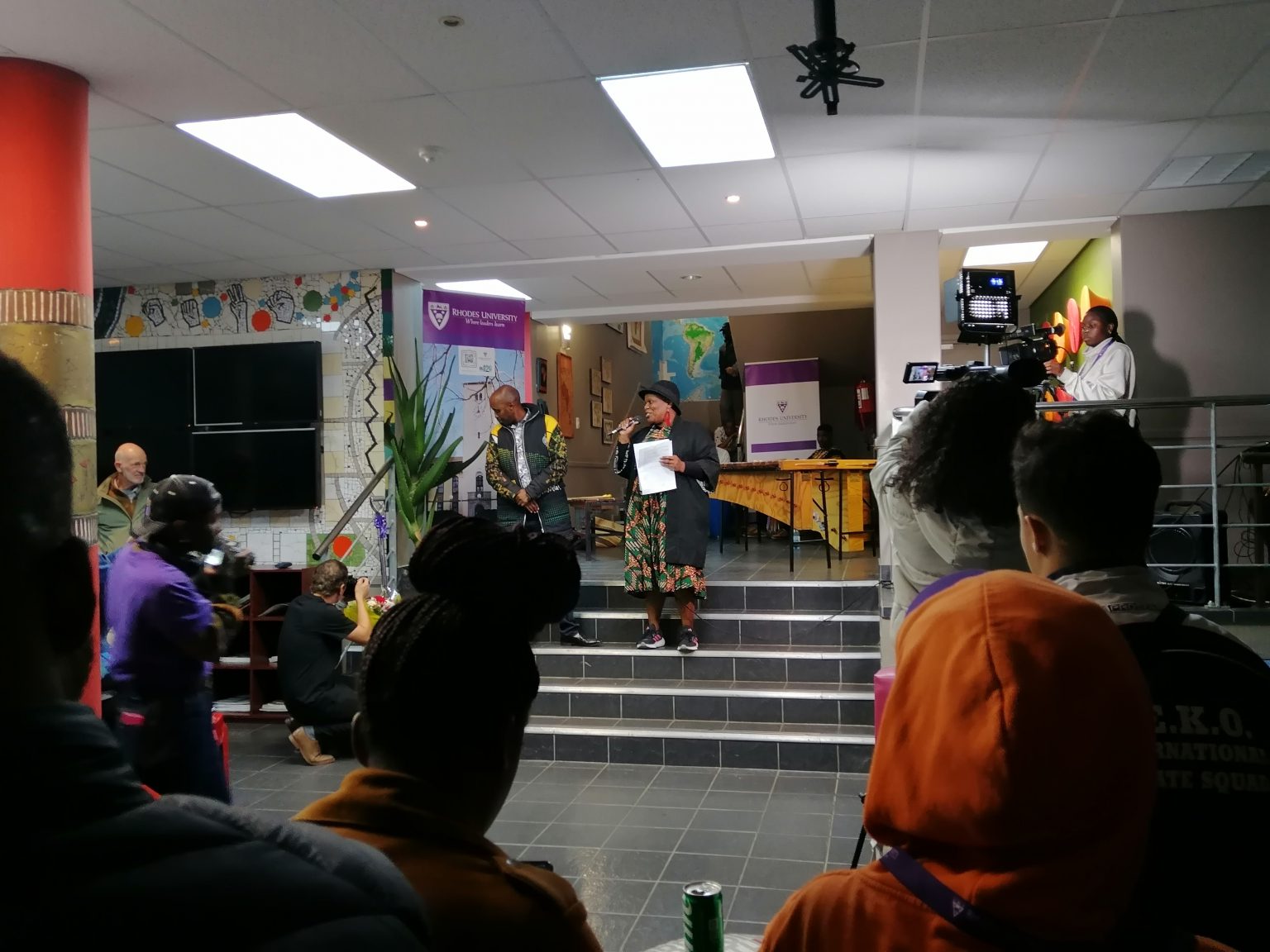By Farirai Dangwa
On the closing night of the 2024 Journalism Summit, Rhodes University’s School of Journalism and Media Studies celebrated the rich history of broadcasting by paying homage to one of the first pioneers of South African journalism, John Tengo Jabavu.
On Thursday, 4 April 2024, Rhodes University’s School of Journalism hosted a Jollof and Jabavu night as a tribute to John Jabavu. Jabavu was co-editor of the first newspaper that printed its articles in isiXhosa, called ‘Isigidimi samaXhosa’. He later founded his own newspaper, ‘Imvo Zabantsundu’, and advocated for equal rights for all, regardless of race or gender. Jabavu made big contributions to building up the foundations of what we know as journalism today.
To acknowledge Jabavu’s contributions to journalism, the 2024 Journalism Summit invited Jabavu’s direct descendants to celebrate their ancestor’s history and plant a commemorative aloe plant in his honour. The aloe plant symbolises the Rhodes School of Journalism’s goal to grow the isiXhosa language within journalism and continue creating a multilingual culture in journalism and society. The plant is closely linked to Jabavu as it also pays homage to the Eastern Cape, where he was born.
As lecturer in the School of Journalism and Media Studies, Thandeka Gqubule-Mbeki states, “The symbol of an aloe runs deep within this land. It’s a rugged, healing, bitter, and beautiful plant. It’s a sign of resilience and a symbol of education and resistance.”
Following a brief overview of John Jabavu’s history by Taryn De Vega, Gqubule-Mbeki introduced the sixth generation of the Jabavu family – Yolisa Jabavu-Ndhlovu and Siyabonga Jabavu. They spoke on their ancestor’s significant role in the South African journalistic world and beyond.
Yolisa wanted to emphasize that John Jabavu was more than what he did. She said, “It is important for us as a family that you humanise him; he was not just an educator, a politician and a journalist; he was a husband and a father and a great-great-grandfather.”
Siyabonga agreed with Yolisa’s statements and added, “This year, as we celebrate his life [John Jabavu], we want to republish Imvo” as a remembrance of the past and looking forward to the future in journalism.”
Concluding the speeches, the aloe plant was planted in front of the Journalism and Media Studies department with a plaque remembering Jabavu and his contributions to South African journalism and beyond. As a collaborator and student within the university, Kerry Lanaghan said, “The journalists before us have shaped the way in which we practise and learn journalism today. They inspire us and remind us of the importance of journalism in South Africa’s history.”


